Are you embarking on the exciting journey of applying for a residency program? If so, you'll likely need a strong endorsement from someone who knows your skills and dedication well. Crafting a thoughtful and effective reference request letter is crucial in making a lasting impression. Ready to learn how to nail your letter and enhance your application? Let's dive in!
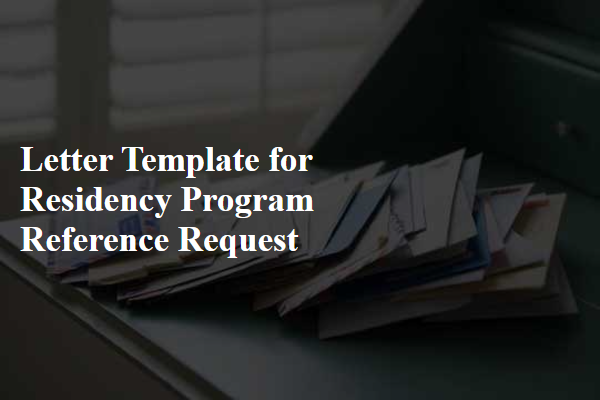
Applicant's Full Name and Personal Details
When pursuing a residency program, an applicant's full name and personal details serve as crucial identifiers in the application process. Typically, this includes the applicant's complete name, which must match official documents, as well as their date of birth, which aids in verification of identity and educational credentials. Contact details, including mailing address, email address, and phone number, ensure that program coordinators can efficiently reach the applicant for updates or additional information. Furthermore, including the applicant's medical school and year of graduation provides context about their educational background and readiness for residency training, underscoring their journey in the medical field toward specialized practice.
Purpose and Program Information
A residency program reference request typically requires clear purpose and program information. The purpose may include enhancing an applicant's chances of selection by providing insights into their qualifications, skills, and experiences relevant to the medical field. Program information usually encompasses details such as the name of the residency program, the medical specialty (e.g., Internal Medicine, Surgery), the training institution (e.g., Johns Hopkins University), and key dates like application deadlines (often around December). Additionally, potential referee relationships (e.g., attending physician, faculty advisor) along with specific attributes to highlight (e.g., clinical skills, teamwork) contribute essential context to strengthen the application.
Relationship with the Referee
As a dedicated mentor and educator, Dr. Sarah Connors has provided invaluable guidance throughout my medical training at St. Mary's Hospital in Chicago. Over the course of three years, she has served as my attending physician during my internal medicine rotations, where her expertise and supportive approach fostered my growth as a healthcare professional. Dr. Connors is a board-certified internist with over fifteen years of experience in patient care, renowned for her compassionate leadership in training medical residents. Her comprehensive knowledge of clinical practice, coupled with her commitment to teaching, has profoundly enriched my understanding of patient-centered care and inspired me to pursue a residency in internal medicine.
Applicant's Qualifications and Skills
The applicant, James Anderson (MD candidate, Class of 2024), possesses exceptional qualifications and skills suited for a residency program in Internal Medicine. His academic achievements include a 3.9 GPA at Harvard Medical School and a year of clinical rotations in hospitals such as Massachusetts General Hospital and Brigham and Women's Hospital, where he demonstrated proficiency in patient evaluation and management. James's strong communication skills facilitated effective teamwork during multidisciplinary rounds, addressing patient care plans in cases involving complex conditions like diabetes and hypertension. He completed a research project on the efficacy of new diabetes treatments, showcasing his critical thinking and analytical skills by publishing findings in the American Journal of Medicine. Additionally, his volunteer work at the Boston Health Care for the Homeless Program underscores his dedication to underserved populations, displaying compassion and commitment to healthcare equity.
Contact Information for Further Clarifications
Contact information for further clarifications plays a crucial role in the residency program reference request process. Providing accurate and professional contact details, including phone numbers (with country codes if international) and email addresses (preferably institutional), helps ensure seamless communication between the residency program directors and the reference providers. Additionally, specifying the best times for contact can enhance efficiency. Including physical mailing addresses may also be beneficial for formal correspondence or documents. Ensuring that references are informed and prepared to answer inquiries is essential for a positive assessment of the applicant's suitability for the residency program.
Letter Template For Residency Program Reference Request Samples
Letter template of residency program reference request for academic performance.
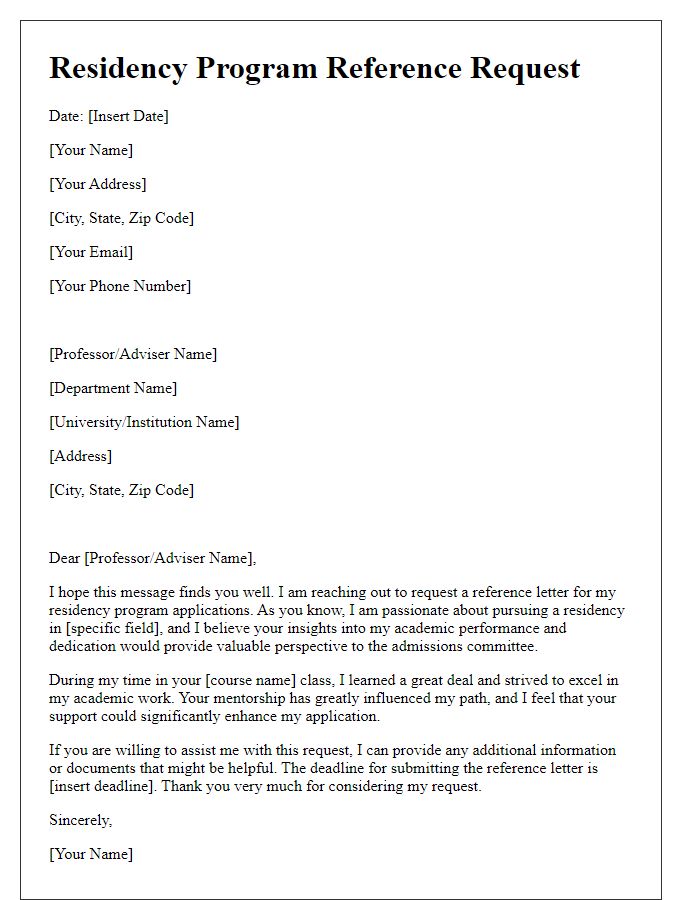
Letter template of residency program reference request for clinical skills.
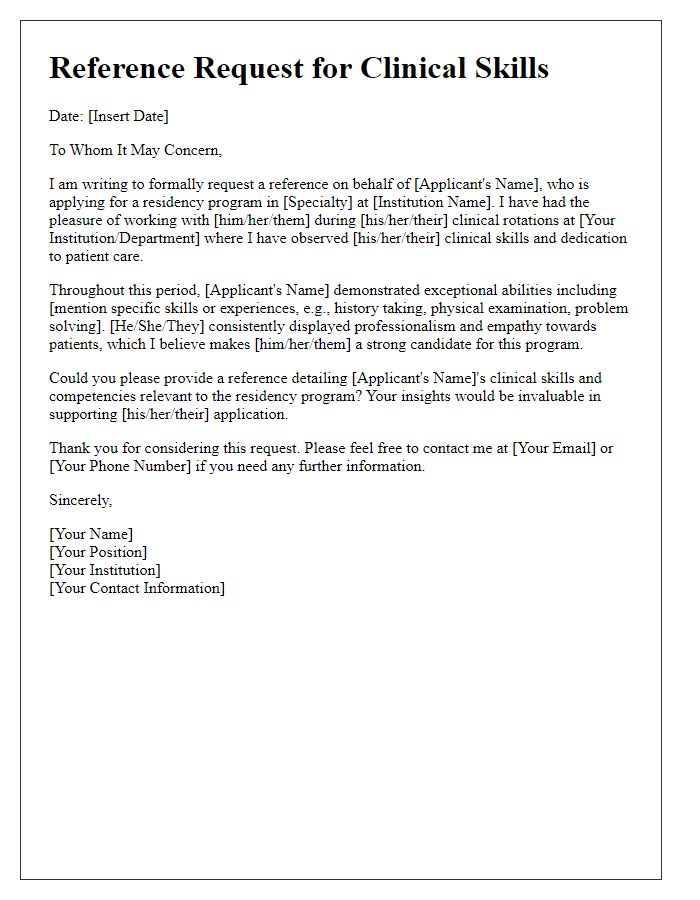
Letter template of residency program reference request for research involvement.
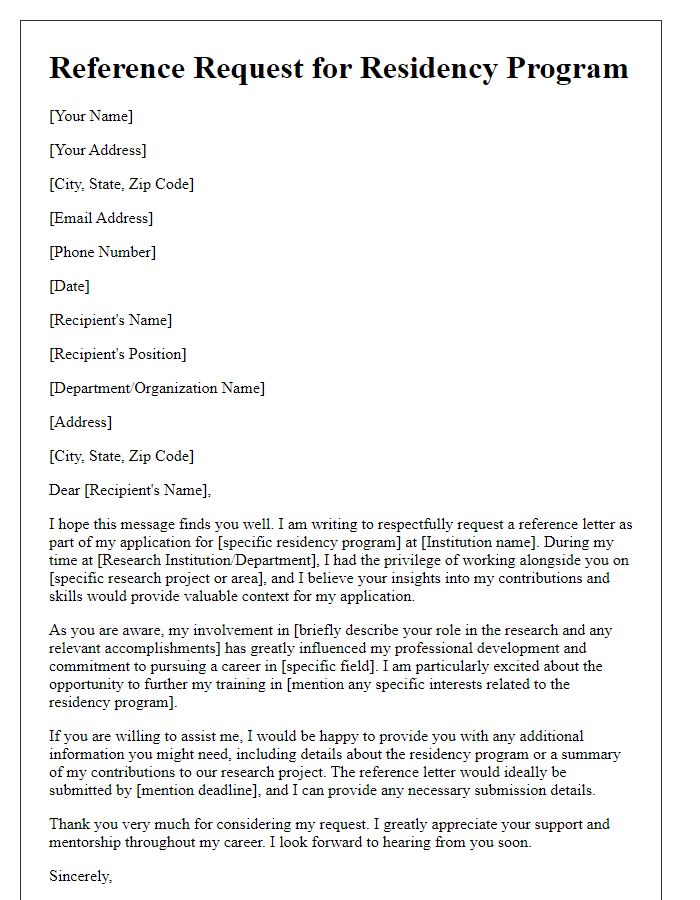
Letter template of residency program reference request for personal qualities.
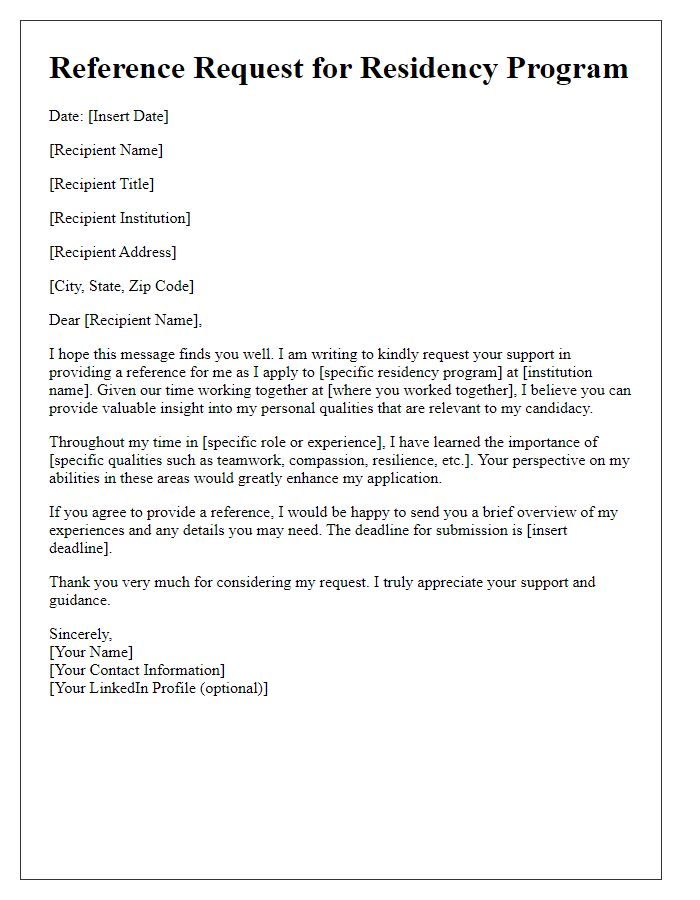
Letter template of residency program reference request for leadership experience.
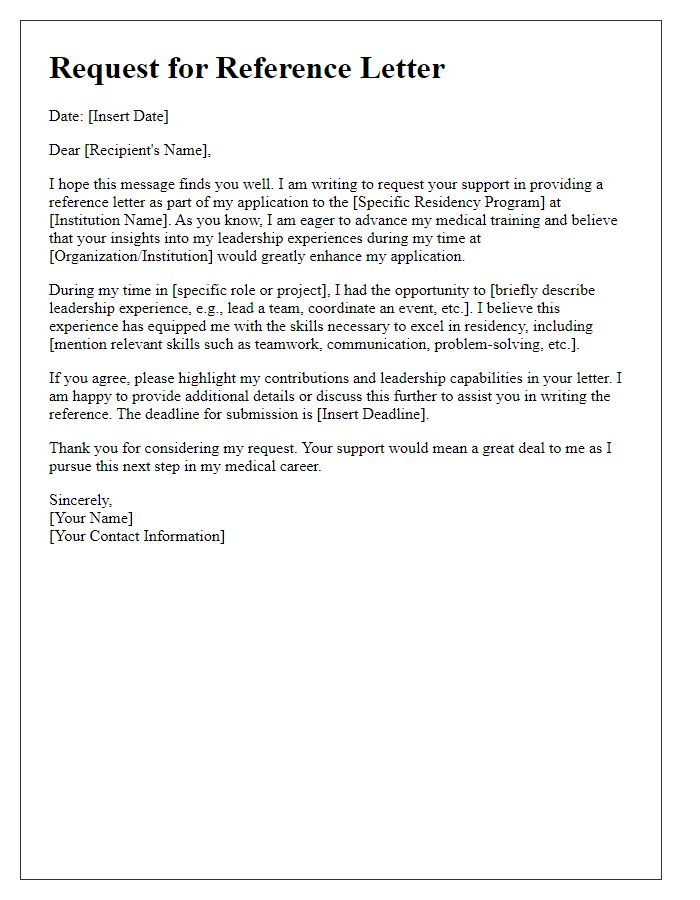
Letter template of residency program reference request for teamwork abilities.
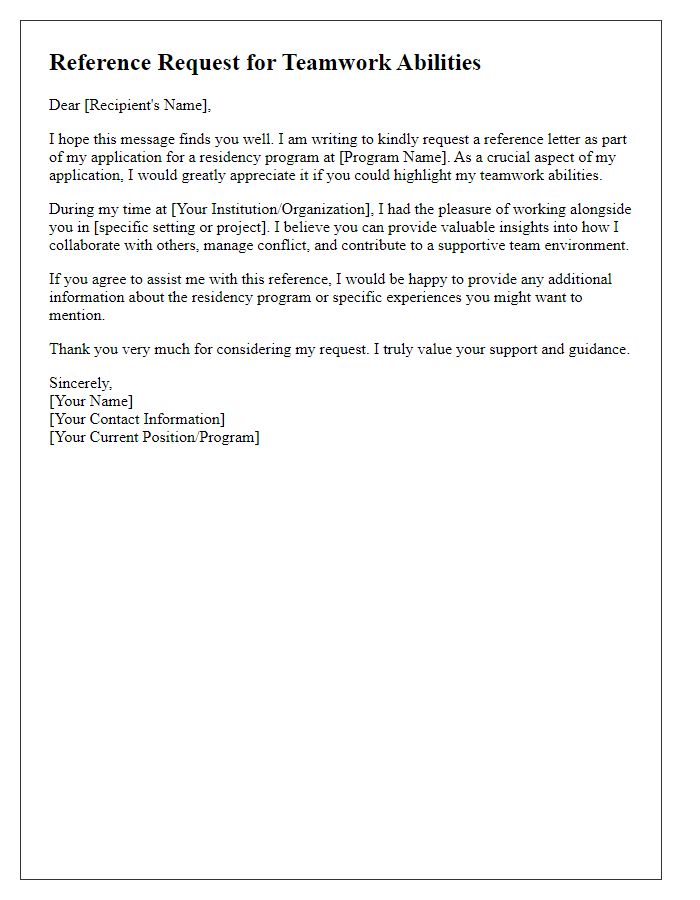
Letter template of residency program reference request for community service contributions.
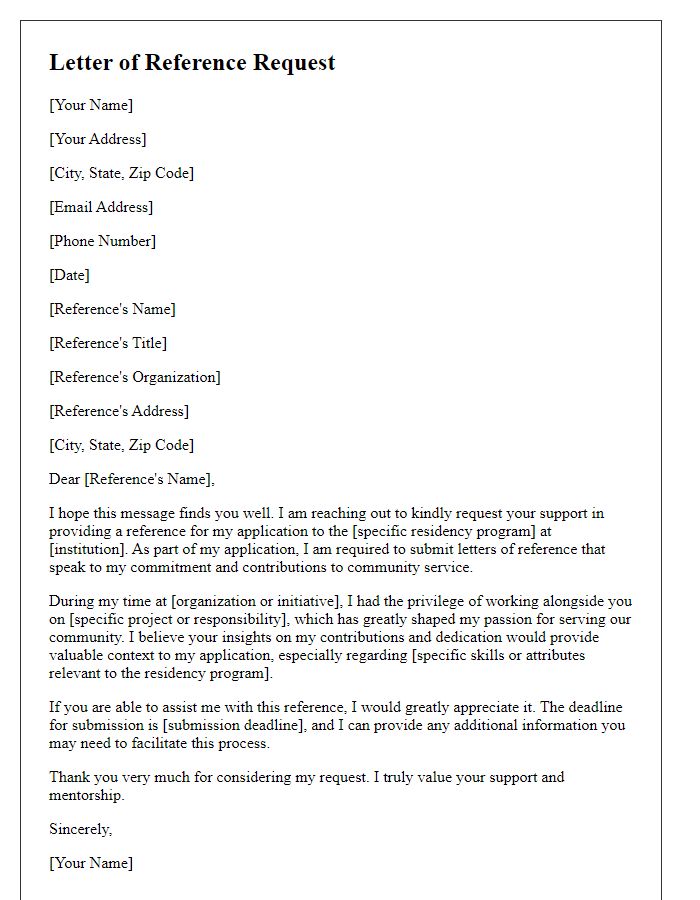
Letter template of residency program reference request for specialty interest.
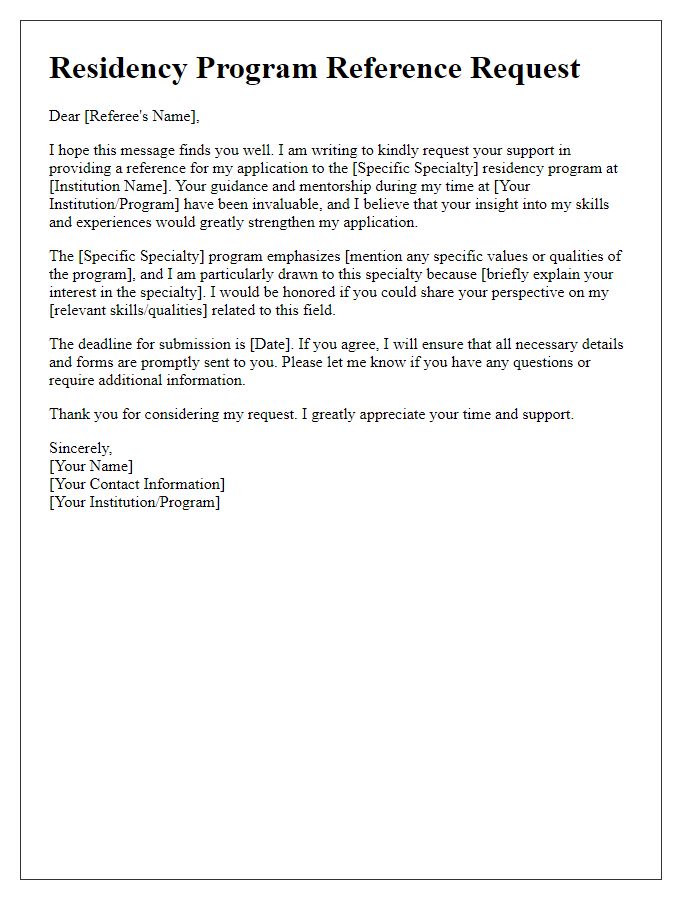
Letter template of residency program reference request for patient care experience.
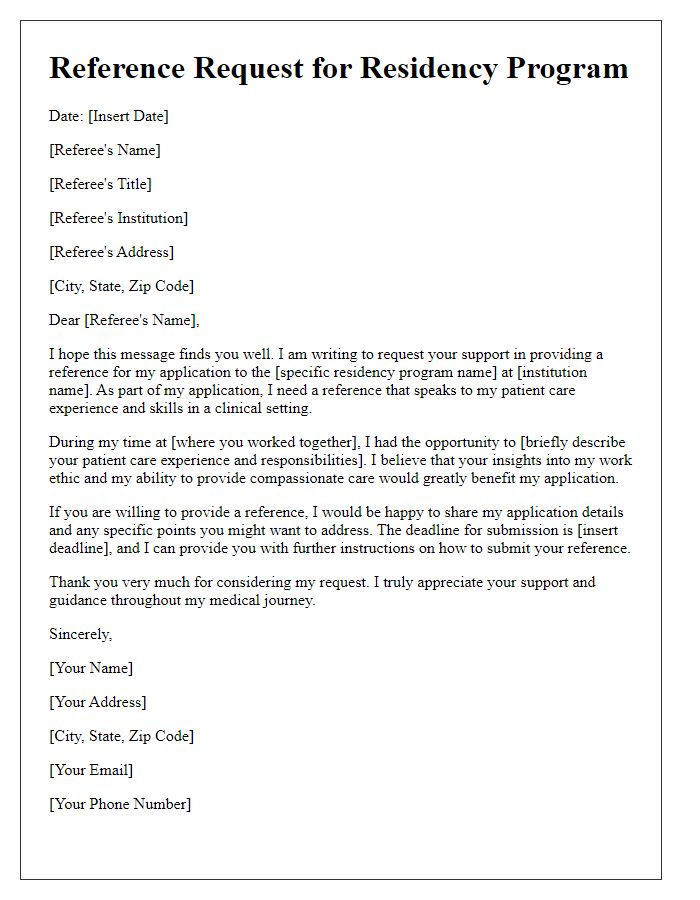

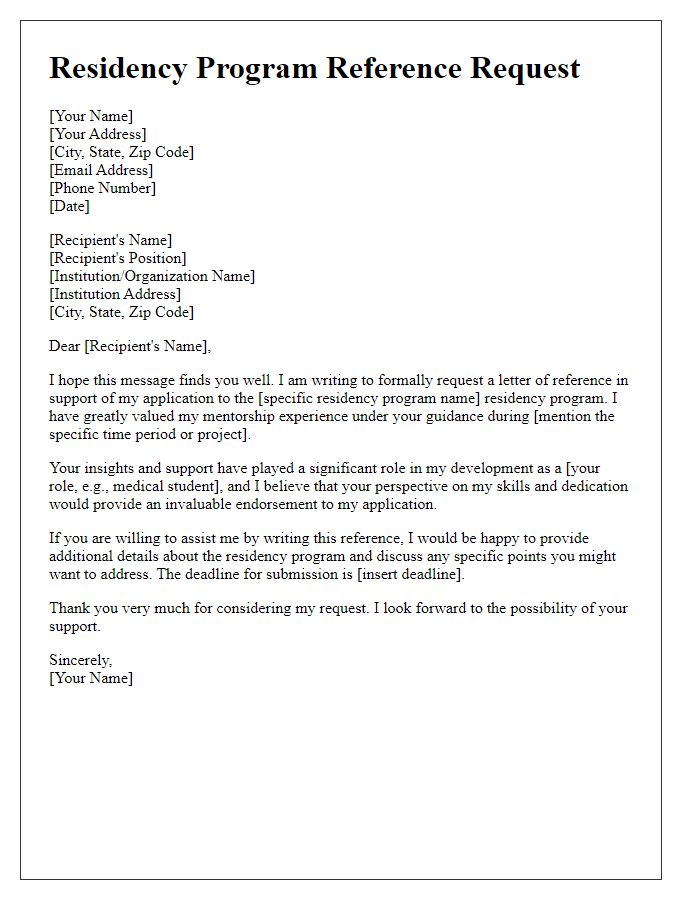


Comments